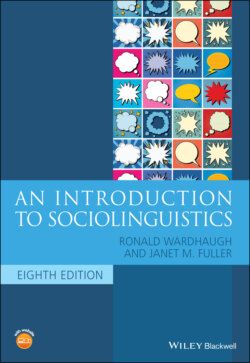Читать книгу An Introduction to Sociolinguistics - Ronald Wardhaugh, Janet M. Fuller - Страница 77
The purist ideology
ОглавлениеA second common ideology is a purist ideology, which rests on the idea that languages – again, as static, bounded systems – should not change but should retain a pure state. This attitude often stigmatizes youth speech as well as other innovations which are part of the natural development of language. Research by Albury and Carter (2018) illustrates this for Maori, the indigenous language of New Zealand. This language was once essentially outlawed by British colonialists, but is now being revitalized, and older speakers have negative attitudes about the Maori spoken by younger speakers who include innovative features; in other words, they have purist ideologies about language. However, this research illustrates an important aspect of hegemonic ideologies: despite dominance, hegemony is never complete (Woolard 1998). In this case, some of the youth who speak Maori are resistant to purist attitudes; for instance, they used loanwords from English and in surveys they gave responses noting that all languages borrow vocabulary. Further, the overwhelming majority of these youths did not feel that one needed to completely master the language in order to use it, but rather that using the language with learner errors was fine – indeed, desirable, as the alternative was allowing the language to die out. Thus the purist ideology, while not altogether absent in the discourse of these youths, was challenged.
